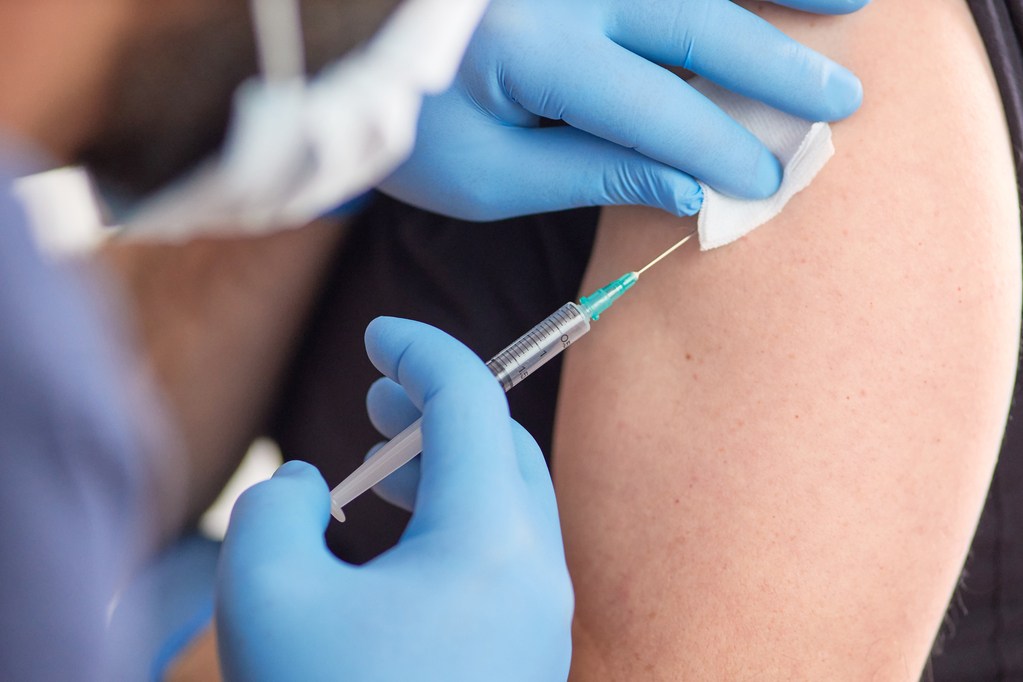The Open Society Foundations submitted this week a complaint before the European Committee of Social Rights (ECSR) against the Bulgarian government for failing to prioritize persons over 65 years old and individuals with underlying conditions in its domestic COVID-19 vaccine rollout.
“By rolling out the vaccine in such a negligent manner, the Bulgarian government put lives at risk, leading to possibly thousands of avoidable deaths,” said Maïté De Rue, a senior legal officer and international expert in human rights at the Open Society Foundations. “Even today, only about one third of the Bulgarian population above 60 years old have been fully vaccinated.”
The Open Society Foundations was founded by George Soros and supports independent groups working for justice, democratic governance, and human rights.
The overall vaccination rate in Bulgaria in among the lowest ones in the EU. As of 21 January 2022, barely 34,1% of adults 18 years and above were fully vaccinated in Bulgaria and 28,5% of the total population. The country has received support and guidance from both the European Commission and the WHO but this has not resolved the bottle-necks in the roll-out.
Compared to the average figures in the EU, Bulgaria is lagging far behind. The cumulative uptake of a full primary COVID-19 vaccine course in the total population of the EU/EEA is increasing slowly and has reached 70% as of 25 January 2022, according to the new Rapid Risk Assessment released by the European Centre for Disease Prevention and Control (ECDC) on Thursday (27 January).
The uptake of a booster dose as a supplement to the primary course, is increasing more rapidly but has still reached only 50% of the adult EU/EEA population. Overall, progress in uptake remains uneven across countries.
In most EU countries, elderly people, especially in care and retirement homes during the first wave of the pandemic, were most heavily hit by the corona virus. In Bulgaria, according to the complaint, between January and May 2021, 8,813 people 60 years old and above died from the coronavirus, accounting for more than 80% of COVID-19-related deaths during this period.
Only about one out of five persons over 65 years old were vaccinated in Bulgaria by May 2021, and the country suffered one of Europe's highest death rates during the third-wave pandemic surge in Spring 2021.
Normally, elderly people should be the first prioritize group to be vaccinated according to guidelines issued by ECDC, but according to the complaint this was not the case in Bulgaria, where those at the age of 65 and over received doses after some vocational groups, including individuals not involved in essential services and not at high risk of serious illness, were prioritized.
In addition, in mid-February 2021, while vaccines were still available in very limited quantities, vaccinations were opened to the general population via “green corridors”, which exacerbated difficulties that vulnerable groups faced for access.
These green corridors led to queues of up to thousands of people at vaccination centers, often outside in temperatures around freezing, making them physically inaccessible for older people and some with pre-existing health problems. Moreover, the Ministry of Health delayed issuing a directive instructing general practitioners and other vaccination centres to vaccinate persons aged 60 years and older until May 17, 2021.
“Older people in retiring homes were included in phase 2 of the vaccination plan, and mobile units were meant to facilitate the vaccination in those places,” Maïté De Rue told The Brussels Times “However, we know that by September 2021, mobile units vaccinated only 4,274 people. It is unclear how many of them were in social homes.”
In the complaint, the Open Society Foundations calls among others on ECSR to compel the Bulgarian government to adopt and implement an emergency action plan with targeted measures to reach out and vaccinate the persons above 60 years old and persons with underlying medical conditions against COVID-19 as a matter of priority.
The ECSR is the body responsible for assessing compliance with the European Social Charter, a Council of Europe treaty which guarantees the right to protection of health. Bulgaria has ratified the European Social Charter and the collective complaints mechanism.
In the above assessment report, ECDC writes that the Omicron variant is currently spreading with unprecedented speed and intensity across the EU/EEA, with overall reported infection rates three times higher than the highest peak during the pandemic so far.
“The very high numbers of infected people are exerting significant pressure in many countries around Europe through a combination of increased hospital admissions and staff shortages due to illness. Efforts should continue to increase vaccine uptake among the unvaccinated, as well as offering a booster shot after three months to all eligible adults.”
“Member States with the lowest vaccination rates will face the highest pressure,” commented Stella Kyriakides, EU Commissioner for Health and Food Safety.
“What Omicron shows, again, is that there is a necessity to vaccinate and a clear case for booster doses to increase protection. The more we vaccinate and boost, the more we can avoid additional hospital admissions and loss of lives. The more we vaccinate and boost, the more we can minimize disruptions for society and ensure that key sectors can continue functioning over the coming weeks and months.”
The Brussels Times

